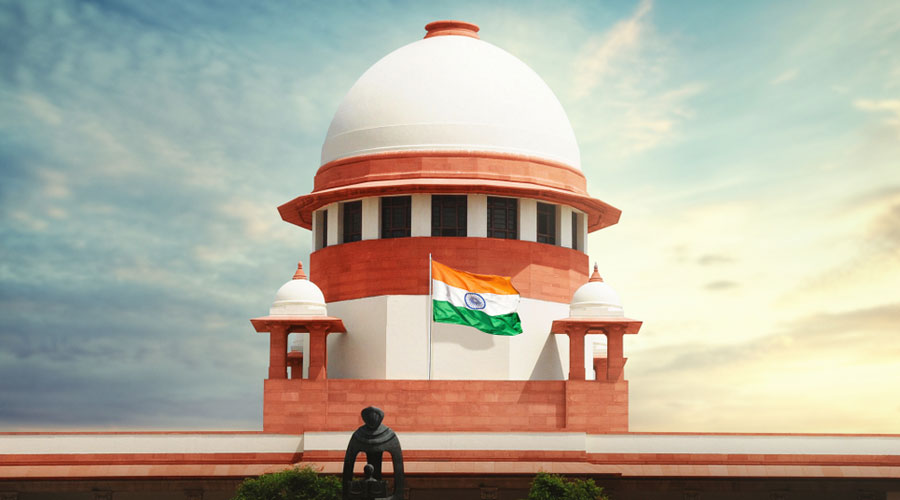The Supreme Court on Thursday warned it would take a “serious view” of demolitions that continued at Jahangirpuri in the capital even after it had issued a stay, and asked if bulldozers were required to remove chairs, benches and boxes from the roads.
“We are going to take a serious view that even after the Supreme Court had passed the order and the orders were communicated to the mayor and others, the demolitions were carried out. We will take it up later,” a bench of Justices L. Nageswara Rao and B.R. Gavai told solicitor-general Tushar Mehta, appearing for the Union government.
The bench adjourned the matter for two weeks to enable the petitioners — the Jamiat Ulama-i-Hind, CPM leader Brinda Karat and an affected fruit vendor — to state on affidavit that demolitions were carried out without prior notice and in violation of the Supreme Court stay order issued on Wednesday. The Centre was asked to file a counter-affidavit.
“To remove chairs, benches and boxes, do you require bulldozers?” Justice Gavai asked Mehta in response to the solicitor-general’s submission that under the Delhi Municipal Corporation Act, the authorities were free to remove chairs, tables and benches of illegal occupants even without notice.
However, in Jahangirpuri, all the illegal occupants were served notices, Mehta said.
Justice Gavai said: “When the statute provides for doing a thing in a certain way, you have to do it in that way. There is also an appellate tribunal. Under Section 343 of the Act (Delhi Municipal Act) there is a time gap of 5-15 days, only after which you can consider demolitions.”
The solicitor-general denied that the houses of only Muslims were being targeted.
“The government is equally concerned with maintenance of rule of law. We are also bound by the Delhi Municipal Corporation Act. Let them (the petitioners) say that A, B, C, D houses were demolished because they participated in the riots,” Mehta said.
He said organisations like the Jamiat Ulama-i-Hind were weaving a false narrative and that the affected individuals were not coming forward since they knew the demolition was pursuant to last year’s Delhi High Court directives for removal of encroachments.
“This is what happens when organisations come here suddenly. It is not the affected individuals who had come here. This is why the organisations have come here and not individuals since they have to show the proof and it can be seen notices were issued,” Mehta said.
He referred to the debate over demolitions being carried out in Khargone, Madhya Pradesh. “In the Khargone demolitions, 88 of the affected individual parties were Hindus and 26 were Muslims…. Notices were issued in 2021. Orders were passed for demolition in 2021 and 2022,” he said.
The petitioners wanted a stay on all such demolition drives across the country, but the court refused. “We can’t stay demolitions all over the country,” Justice Rao, heading the bench, observed.
The court said Wednesday’s status quo order passed by a bench headed by Chief Justice N.V. Ramana would continue until further orders.











